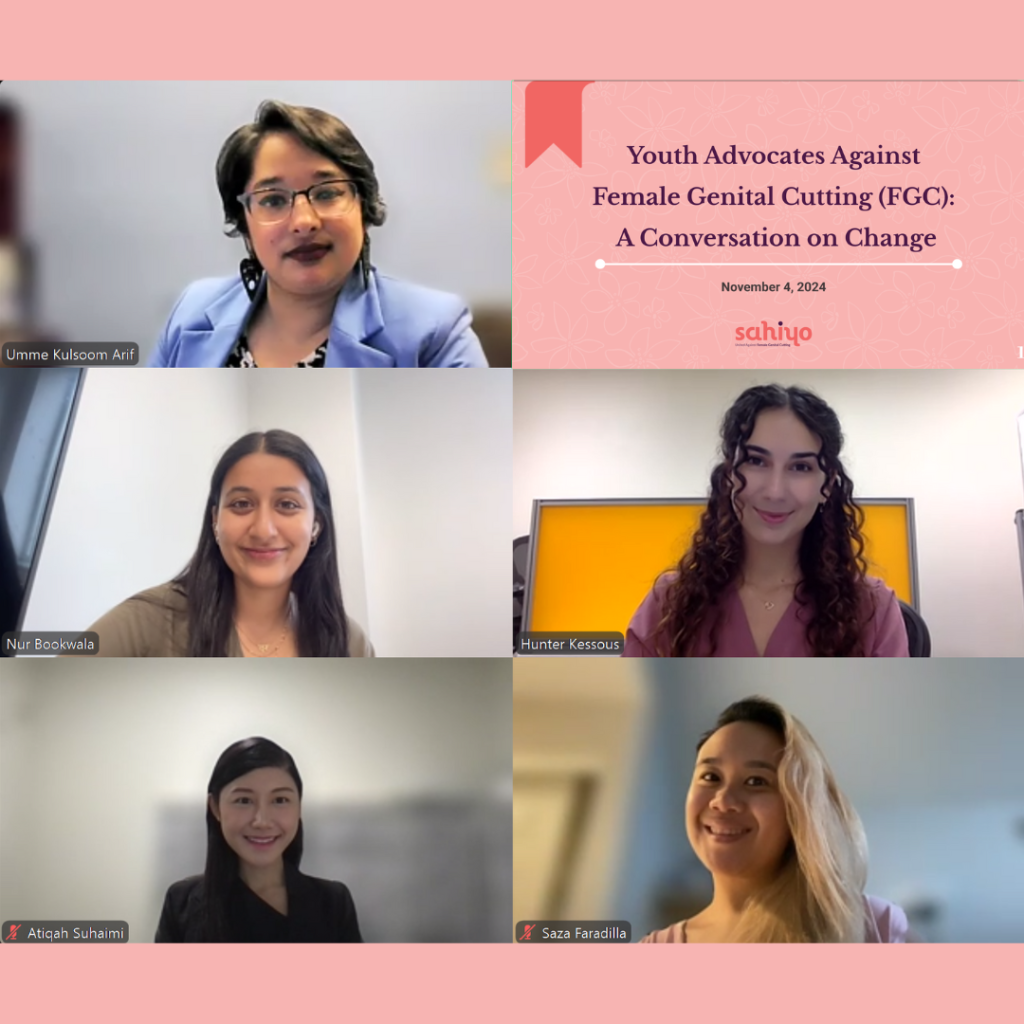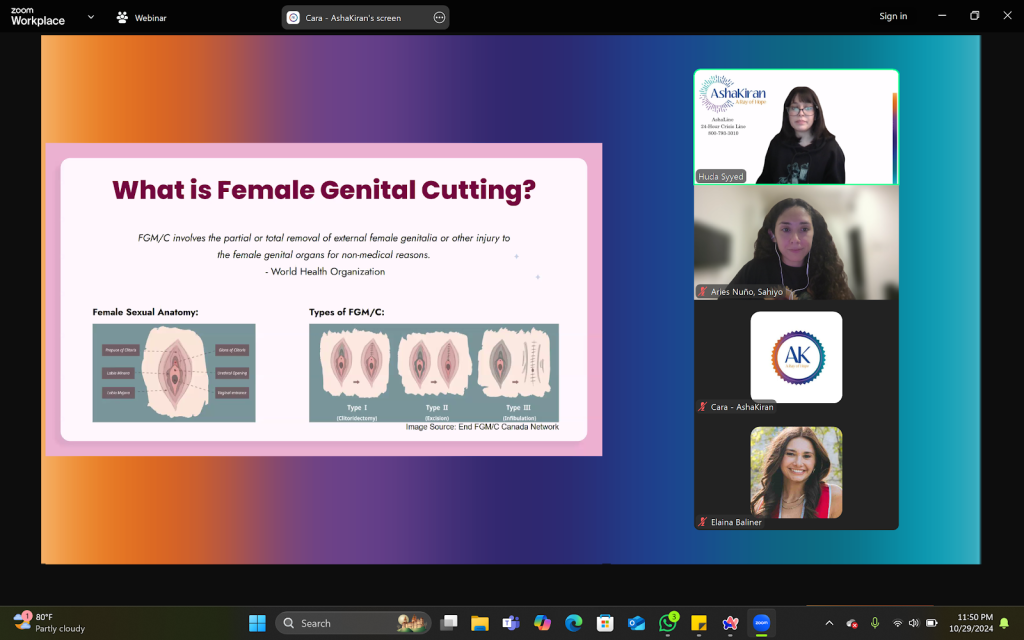Reflecting on the webinar “Youth Advocates Against Female Genital Cutting – A Conversation on Change”

On November 4, Sahiyo U.S. hosted a vibrant webinar titled: Youth Advocacy Against Female Genital Cutting (FGC): A Conversation on Change, where a global community of advocates, educators, medical professionals, and human rights advocates gathered to share experiences and strategies for change. The diversity of perspectives in attendance highlighted how broad the movement to end FGC is. We heard from students who are passionate about women’s health, professors seeking to educate themselves on FGC, and activists working directly in their communities to end this harmful practice. Attendees gathered from near and far, with some folks tuning in from the city of Chicago and others from Singapore! Panelists at the event shared how youth are uniquely positioned to challenge entrenched norms and misconceptions around FGC. One advocate emphasized the importance of research and access to resources in academic institutions. Another spoke on the power of intergenerational engagement, highlighting how each generation brings unique strengths to the movement. Addressing the diverse cultural landscape, a third panelist discussed the significance of incremental progress in regions where FGC is deeply rooted in community social norms, stressing that every step forward, no matter how small, contributes to broader change. As one attendee described, the stories that were shared among the group were “beautiful, heartbreaking, and powerful,” while others thanked the panelists for their “bravery in turning betrayal into action.” For those who couldn’t join, here is a link to the recording of the webinar. We encourage you to watch and reflect on this incredible event alongside us!
Upcoming Training: Prevention Efforts for FGM/C Across the Country

Sahiyo U.S. invites you to join our upcoming training session: Prevention Efforts for FGM/C Across the Country on December 12, 2024 at 12-1:30 PM PT/ 3-4:30 PM ET. This training was developed in collaboration with our project partners the U.S. End FGM/C Network, Mother Africa, and the Washington Department of Health, as part of our efforts to prevent and respond to FGM/C in Washington State. In this session we will delve into prevention programming and efforts on FGM/C in the United States. Our aim is to equip organizations, service providers, advocates, and community leaders with the knowledge, tools, and frameworks to best engage in preventing FGM/C. Through this training we will uplift best practices and insights on prevention programming and provide individuals and organizations with the knowledge and skills to engage in effective and culturally sensitive prevention work. The training will also feature speakers from organizations that have successfully integrated prevention programming strategies into their work to stop FGM/C and save those who are at risk. By the end of the session, participants will: Be introduced to case studies of impactful prevention programs, showcasing key success factors and lessons learned Identify strategies for building cross-sector collaborations and partnerships Learn about best practices for engaging communities in prevention efforts Register here!
Training Recap: An Introduction to Female Genital Cutting with AshaKiran

On October 29, Sahiyo U.S. partnered with AshaKiran, an Alabama-based organization, to host a Female Genital Cutting 101: An Introduction to FGC training. AshaKiran is dedicated to supporting underserved communities in crises such as domestic violence, sexual assault, and human trafficking born outside of the U.S. This training focused on building foundational knowledge around FGC and its impact on women and girls both in the United States and globally. Led by Sahiyo’s Training and Technical Assistance Coordinator Aries Nuño, Volunteer Huda Syed, and Development Intern Elaina Baliner, the session addressed FGC as a form of gender-based violence (GBV) that remains largely hidden and perpetuated by silence within communities. A key discussion point was Alabama’s unique position as one of the states without specific laws against FGC, emphasizing the importance of advocacy, policy change, and increased awareness in areas where legal protections for women and girls remain limited. Participants explored the need for trauma-informed, culturally sensitive services, as well as the role of enhanced data, research, and community engagement to strengthen prevention, protection, and support for those at risk of FGC. Through an open and compassionate dialogue, attendees gained practical tools to approach FGC with empathy and understanding, underscoring the importance of informed conversations in order to foster change. We are grateful to AshaKiran, our dedicated presenters, and all the participants for coming together to learn about the impact of FGC in the United States.
